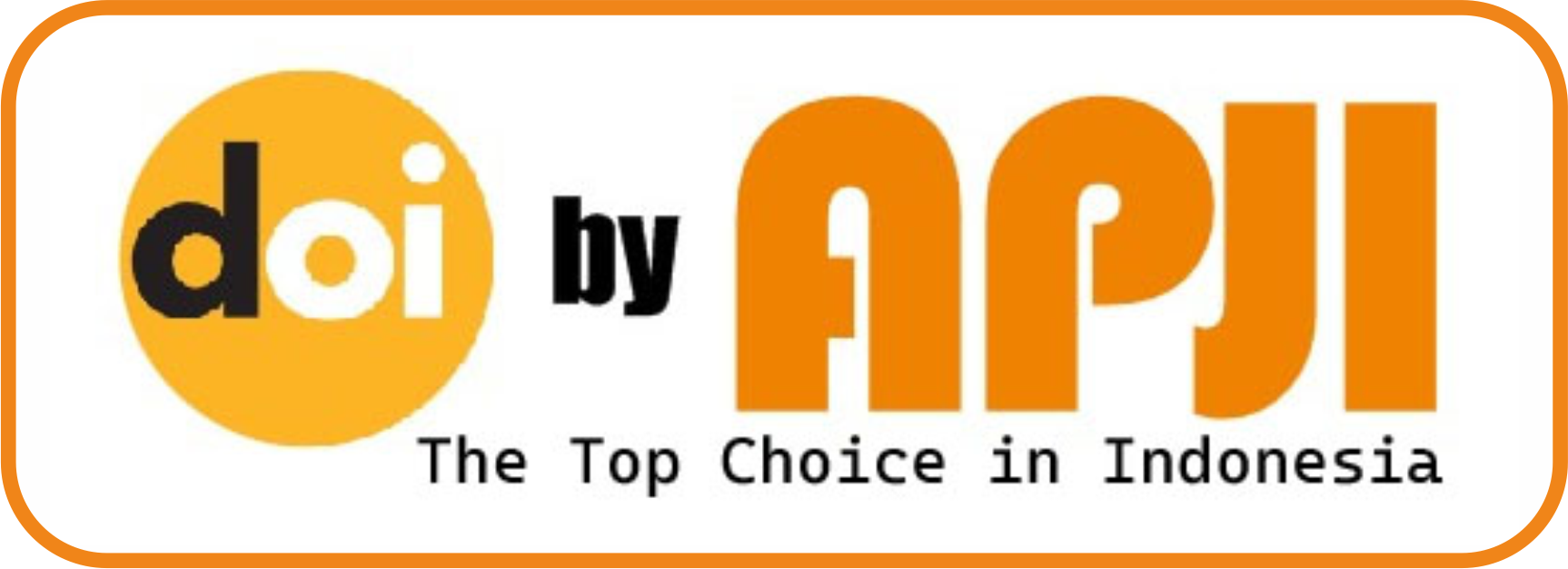The Influence of Government Funding on Advancing Digital Transformation within the Arts and Cultural Landscape in Indonesia
DOI:
https://doi.org/10.55606/ijel.v2i3.78Keywords:
government funding, digital transformation, arts and culture, IndonesiaAbstract
This research paper focuses on exploring the influence of government funding on advancing digital transformation within the arts and cultural landscape in Indonesia. The primary goal of this study is to investigate the impact of government funding initiatives on catalyzing digital transformation within this dynamic domain. Digital transformation has become a critical force in shaping the arts and cultural sector, revolutionizing the creation, accessibility, and dissemination of artistic expressions. While several studies have examined digital transformation and government funding in various contexts, limited research has specifically focused on the influence of government funding on advancing digital transformation within the arts and cultural landscape in Indonesia. The problem statement revolves around understanding the extent to which government funding initiatives impact the advancement of digital transformation in the arts and cultural sector in Indonesia. The research questions include exploring the key factors shaping the relationship between government funding and digital transformation, as well as understanding the challenges and opportunities associated with these initiatives. This study employs a qualitative research methodology, specifically relying on secondary data sources such as academic journals, research papers, books, government reports, and relevant documents. The findings of this study provide valuable insights into the influence of government funding on advancing digital transformation within the arts and cultural landscape in Indonesia. The analysis reveals key factors shaping the relationship between government funding and digital transformation, highlighting challenges and opportunities for future development. This study has implications for policymakers, practitioners, and researchers, guiding strategic decision-making and policy formulation to drive the advancement of digital practices within the arts and cultural landscape in Indonesia.
References
Autor, D., & Salomons, A. (2018). Is automation labor-displacing? Productivity growth, employment, and the labor share. Brookings Papers on Economic Activity, 2018(1), 1-65.
Autor, D. H. (2015). Why are there still so many jobs? The history and future of workplace automation. Journal of Economic Perspectives, 29(3), 3-30.
Acemoglu, D., & Restrepo, P. (2019). Automation and new tasks: How technology displaces and reinstates labor. Journal of Economic Perspectives, 33(2), 3-30.
Bakhshi, H., Freeman, A., & Higgs, P. (2013). Digital transformations in the creative arts: A hybrid logic. Creativity and Innovation Management, 22(3), 279-292.
Ballon, P., & Van Hees, J. (2016). Policy implications of the digital transformation of the arts. Journal of Cultural Management and Policy, 6(1), 3-20.
Beaudry, P., & Green, D. A. (2020). The great reversal in the demand for skill and cognitive tasks. Journal of Labor Economics, 38(S1), S33-S66.
Bessen, J. E. (2019). AI and jobs: The role of demand. NBER Working Paper No. 24235.
Bughin, J., Catlin, T., & LaBerge, L. (2018). The case for digital reinvention. McKinsey Quarterly, 1(2), 1-14.
Bulajic, A., Stejskal, L., & Zdrazilova, K. (2020). The role of government funding in digital transformation of cultural heritage institutions. International Journal of Information Management, 51, 102025.
Brynjolfsson, E., & McAfee, A. (2014). The Second Machine Age: Work, Progress, and Prosperity in a Time of Brilliant Technologies. W. W. Norton & Company.
Brynjolfsson, E., & McAfee, A. (2011). Race against the machine: How the digital revolution is accelerating innovation, driving productivity, and irreversibly transforming employment and the economy. Digital frontier press.
De Jong, M., & Elam, J. (2018). Government funding of arts and culture: Exploring the value of public-private partnerships. Public Administration Review, 78(6), 856-866.
Elcott, N. (2018). Digital transformation and cultural heritage. Journal of the Society of Architectural Historians, 77(2), 174-183.
Hall, B. H., & Sadowski, B. M. (2019). The economic impact of digital transformation. NBER Working Paper No. 25675.
Heald, D. (2016). Digital transformation in the arts and cultural sector: A review of challenges and success factors. International Journal of Arts Management, 19(2), 39-49.
Helpman, E. (2018). The myth of secular stagnation. NBER Working Paper No. 24128.
Iansiti, M., & Lakhani, K. R. (2017). The truth about blockchain. Harvard Business Review, 95(1), 118-127.
Janssen, M., & Yigitcanlar, T. (2020). Government support for digital transformation in the cultural sector: A comparative analysis of international practices. Government Information Quarterly, 37(3), 101501.
Jung, T. H., Chung, N., & Leem, J. H. (2017). Determinants of government support for digital cultural content industry. Journal of Business Research, 78, 277-285.
Kane, G. C., Palmer, D., Phillips, A. N., Kiron, D., & Buckley, N. (2015). Strategy, not technology, drives digital transformation. MIT Sloan Management Review, 56(4), 18-27.
Lacity, M. C., & Willcocks, L. P. (2017). Nine keys to unlocking digital innovation in traditional companies. MIS Quarterly Executive, 16(2), 135-149.
Lee, J., Lapira, E., Bagheri, B., & Kao, H. A. (2018). Recent advances and trends in predictive manufacturing systems in big data environment. Manufacturing Letters, 16, 106-111.
Mazzucato, M. (2018). The value of everything: Making and taking in the global economy. Penguin Books.
McAfee, A., & Brynjolfsson, E. (2017). Machine, platform, crowd: Harnessing our digital future. W. W. Norton & Company.
Ross, J. W., Beath, C. M., & Quaadgras, A. (2018). Design principles for digital platforms: A literature review. MIS Quarterly, 42(1), 245-267.
Schrape, N. (2019). Digital transformation and the public sphere: Conceptual considerations and empirical findings. Social Media + Society, 5(3), 2056305119865466.
Tushman, M. L., & O'Reilly III, C. A. (2017). Lead and disrupt: How to solve the innovator's dilemma. Harvard Business Review Press.
Usherwood, S., Roberts, A., & Burton, J. (2015). Evaluating the impact of digital transformation on cultural heritage organisations. Journal of Documentation, 71(3), 569-587.
Van Reenen, J. (2018). Increasing inequality: Is it inevitable? NBER Working Paper No. 24287.
Westerman, G., Bonnet, D., & McAfee, A. (2014). Leading digital: Turning technology into business transformation. Harvard Business Review Press.
Westerman, G., Bonnet, D., & McAfee, A. (2011). The future of work: How the new order of business will shape your organization, your management style, and your life. Harvard Business Review Press.
Downloads
Published
How to Cite
Issue
Section
License
Copyright (c) 2023 International Journal of Education and Literature

This work is licensed under a Creative Commons Attribution-NonCommercial-ShareAlike 4.0 International License.



















